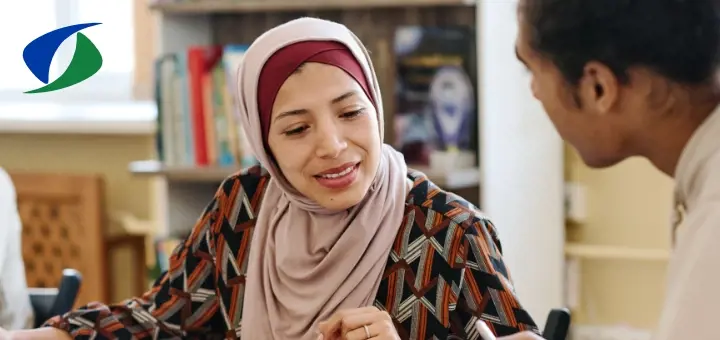Community Health & Wellbeing Workers (CHWW) Programme
From 1 July 2025, under our new contract, we’re recruiting Community Health & Wellbeing Workers (CHWW)—people from our local community who go out into the community to help you take charge of your health.

Who our Community Workers are
Our Community Workers are from BS2 and BS5. They know our streets, schools and places of worship. Many speak Somali, Arabic, Urdu, Polish, Romanian, and more. Because they’re local, they understand real-life barriers—cultural sensitivities, caring for family, money worries, trauma, shift work and digital skills. This local knowledge builds trust and leads to practical help that fits your life.
What they do
- We come to you—home visits, community centres, faith groups, markets and school gates. We also do door-to-door outreach (with consent) to reach people who may not come to the practice.
- We help you register with the practice, even if you have no fixed address.
- We book childhood vaccines and cancer screening and explain what will happen.
- We check simple things like blood pressure at home or in pop-up clinics.
- We show you the NHS App and our online requests, and set reminders if you want them.
- We link you to money, housing, food and exercise support.
- We work with our clinicians so you see the best clinician for your needs.
Making health proactive (not just fixing problems)
We do more than react when you’re unwell. Together we make a simple plan:
- agree small goals (for example: “book my child’s MMR”; “check my blood pressure this week”)
- choose how you want reminders (text, call, in person)
- set times that suit your life (after the school run; before a night shift)
Each worker supports a small group of households, so you see the same person over time. This builds trust and keeps you on track.
Cultural understanding (an example)
In some Somali families, parents prefer the MMR vaccine when a child is older—often due to autism myths or wanting to see a child walking and talking first. A Community Worker from the Somali community can discuss this in Somali, with kindness. They share clear NHS facts, involve a trusted community leader if helpful, and offer longer appointments. Families then choose what feels right. If they wish, we book catch-up vaccines. This respects culture and builds trust.
How it works
- Ask for help – use our online form (fastest) or call us.
- Meet a Community Worker – at home, in the practice or at a local venue.
- Make a plan – we book what you need and set reminders if helpful.
- Follow-up – we check in, solve problems and keep you moving forward.
What to expect at a visit
- Workers carry NHS ID.
- You can ask for a female or male worker where possible.
- You can ask for an interpreter.
- We never ask for money.
- Your information is private and safe.
- If you feel unsafe at home, tell us—we will help.
For community partners
The CHWW model is used in countries such as Ethiopia, Pakistan and Nigeria. In the UK it has been adopted or piloted in areas including Westminster and Cornwall. The model reduces inequalities by building trust, improving communication and increasing uptake of immunisations, screening and other preventive care.
Do you support local families?
- Refer households for vaccine and screening support.
- Host a weekly drop-in at your venue.
We also work with local researchers and population health teams to test what works and share learning.
Email: charlottekeelmedicalpractice@nhs.net